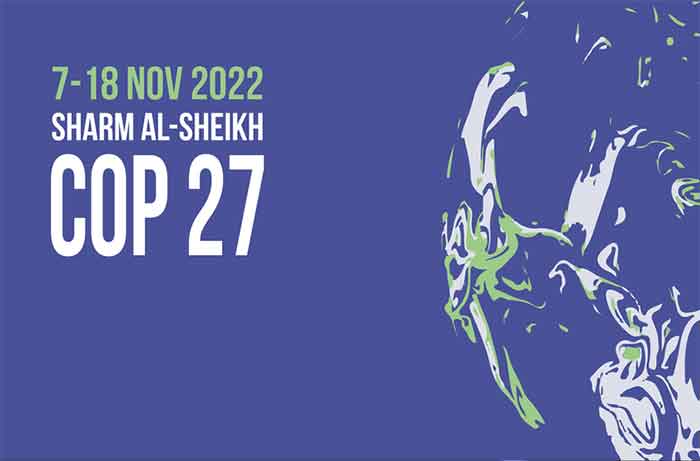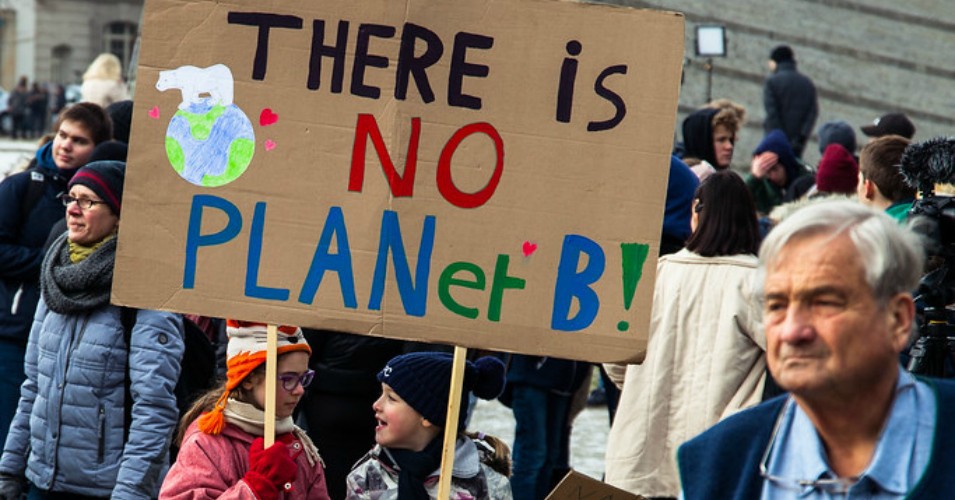
Will COP-27 help to improve the climate agenda in significant ways, or will it carry on as before?
This is an important question for humanity, keeping in view the increasing evidence of the extremely serious nature of climate disruption related threats, which just keeps on piling.
At the same time, it has become increasingly clear that the existing response of humanity to this extremely important challenge is neither adequate nor well thought-out. Briefly, this response is based on ‘we do what we can do’ and not on ‘what really needs to be done’. Ominously, it is also increasingly based on con-games and deceptions of the big polluters themselves, the forces most responsible for the crisis, who have now put up masks to try to appear like those who can solve the crisis for us.
Increasingly it has been seen that our deeply troubled, divided and distorted world is more capable of identifying and researching the most serious problems than of sincerely confronting and solving them. In the case of several serious problems, due to several reasons, the most obvious and rational solutions are neglected. In their place a different agenda which appears more doable is drawn up and promoted as the only solution. What is even worse, several of those who have been most responsible for problems are allowed to emerge as promoters of false solutions, distorting the entire agenda even more.
All these trends can be seen in the context of climate change as well and therefore significant reforms and redrawing of climate agenda are needed.
One important change that is needed is to give top priority to eliminating war, weapons race and all weapons of mass destruction. War and all preparations made for war, weapons race and militarization together constitute the biggest polluter, the biggest source of GHG emissions. This is one polluter which can be done away with entirely, and eliminating it will bring hundreds of other gains no less important than the reduction of pollution. Yet this crucial aspect has not received much importance so far in climate change negotiations.
There are hundreds of harmful and toxic products, whose production and use can be reduced significantly, sometimes even eliminated, or almost so. This reduction is justified independently on welfare and health grounds alone but in addition also can achieve very significant reduction in GHG emissions as these products frequently involve high GHG emissions at various levels of raw material procurement-actual production-distribution-consumption-disposal cycle, apart from causing other forms of pollution. The reduction or possibly even phasing out of these various products has not yet become a priority for climate change agenda.
There are hundreds of highly polluting super-luxury products (and consumption patterns based on them) which are used only by the super-rich which can easily be eliminated or drastically reduced without any welfare loss but this has not been targeted yet in any significant way.
As climate disruption intensifies and urgency of reducing GHG emissions increases, only a more limited environmental space is available to ensure that basic needs of all can be met, and this therefore makes it much more essential than before to limit the high luxury life style of a super-rich minority. This as well as overall higher emphasis on equality has not yet received adequate importance in climate agenda at a realistic level. The wider terrible reality is that inequalities are actually increasing in several ways in our world of very high distortions, at a time when equality is needed more than ever before by human societies.
In the earlier stage of climate negotiations there was more hope than presently of obtaining significant damage or loss recovery payments for the people of the global south, who suffer the worst impacts of climate change, from industrial rich countries most responsible historically for climate disruption. However such hopes of climate justice have largely been dashed by now and a much more limited agenda has taken its place.
What is more, even this very limited agenda of setting up an annual 100 billion dollar climate fund for global south and then using it in just ways has been lagging far behind regarding its schedule and fund commitments. All the richest countries together have not been able to assemble 100 billion dollars a year for this most crucial task, despite their repeated commitment to this, while the annual expenditure of just one of these countries, the USA, on alcoholic beverages alone is 252 billion dollars and its stated annual military budget amounts to around 800 billion dollars (likely to be a substantial underestimate which leaves out several hidden military expenses).
While social agro-ecology based on small farmers can contribute so much to checking climate disruption, apart from reducing poverty and improving access to healthy food, very powerful corporations based in leading industrial countries have been allowed and facilitated by the governments of these countries to push the world food and farming system towards exactly opposite ways which are highly polluting and unjust. The remaining natural forests have a very important role in checking climate disruption, but big business interests which destroy forests on a vast scale have been facilitated by many governments in various ways.
Hence it is extremely important to reconsider and reform the existing climate change agenda instead of merely carrying on as before. This should be taken up prominently at COP-27 and related negotiations and discussions.
Bharat Dogra is Honorary Convener, Campaign to Save Earth Now. His recent books include Planet in Peril, Protecting Earth for Children and A Day in 2071.














































